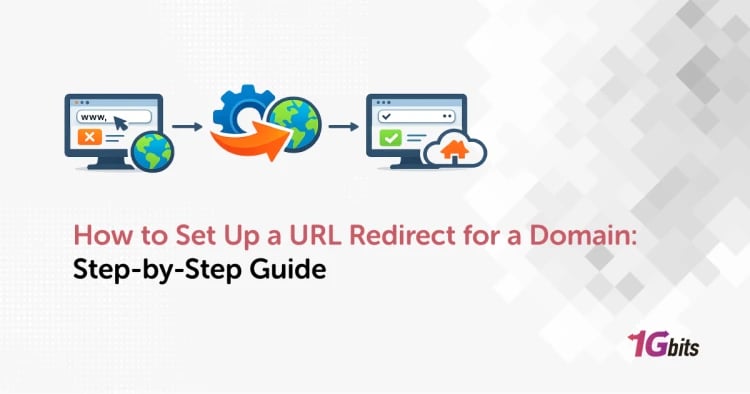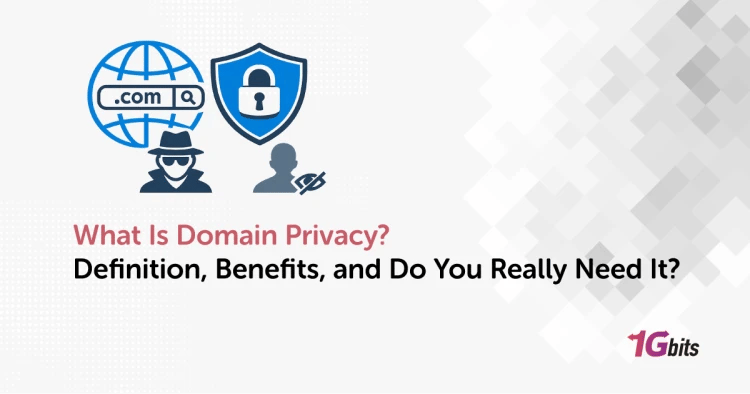What is VPC? Let's talk about it in detail. A Virtual Private Cloud (VPC) is a fundamental concept in cloud computing that allows users to create a private, isolated section within a public cloud environment. Understanding what is VPC is crucial for anyone diving into cloud services. So, what is VPC? At its core, it is a virtual network that provides the ability to control network configurations, enhance security, and manage resources efficiently.
When exploring what is VPC in networking, it's important to recognize that it facilitates the creation of subnets, route tables, and internet gateways, what is VPC architecture. In the realm of cybersecurity, what is VPC in cybersecurity is about providing a secure environment where resources are protected from unauthorized access.
Now, what is VPC peering? It refers to the connection between two VPCs, allowing resources to communicate directly without traversing the public internet. Similarly, understanding what is VPC endpoint is key, as it enables private connections between VPCs and supported AWS services.
What is VPC in cloud computing? What is VPC and why it is used becomes evident through its benefits: scalability, flexibility, and enhanced security. Delving into what is VPC and what are its benefits reveals how businesses can leverage these virtual environments for efficient resource management.
What is VPC attachment? This involves connecting resources, such as instances or databases, to the VPC. Learning what is VPC and its components provides insight into its various elements like subnets, security groups, and network ACLs.
So, what is VPC and how does it work? It's a managed service that allows users to launch AWS resources in a virtual network. Finally, understanding what is the difference between VPC and VPN highlights how VPCs provide isolated cloud environments while VPNs offer secure connections over public networks.
---
❓ What is VPC and Why Is It Used?
A Virtual Private Cloud (VPC) is a critical component in cloud computing, offering a private, isolated section within a public cloud where users can deploy their resources in a virtual network they define. Understanding what is VPC is essential for anyone working with cloud services as it provides a customizable and secure environment for managing and deploying resources.
☁️ What is VPC in Cloud Computing?
In the context of cloud computing, VPC represents a virtual network that offers the functionalities of a traditional network with added benefits of flexibility and scalability. It allows organizations to launch resources such as virtual machines, databases, and storage within a controlled, isolated segment of the cloud. This setup ensures that resources are only accessible to authorized users and systems, providing enhanced security and control.
🛠️ What is VPC in AWS?
AWS (Amazon Web Services) provides one of the most widely adopted VPC implementations. Understanding what is VPC in AWS involves recognizing that it enables users to create isolated networks within the AWS cloud, complete with their own IP address ranges, subnets, route tables, and gateways. This isolation is crucial for maintaining security and performance standards required by different applications and services. AWS VPCs allow for precise control over the network configuration, ensuring that the resources operate in a secure and optimized environment.
🌐 VPC in Networking
From a networking perspective, VPC in networking involves creating a virtual network that operates similarly to a physical network, with the added benefits of cloud-based scalability and flexibility. VPCs enable the creation of subnets, setting up routing rules, and configuring gateways to manage traffic flow, all within a virtual environment. This makes it easier to manage and scale networks as needed, ensuring efficient resource allocation and network performance.
🎯 What is VPC Used For?
Understanding what is VPC used for is essential to appreciate its benefits fully. VPCs are used to:
- Enhance Security: By isolating resources in a private network, VPCs ensure that only authorized users and systems can access them.
- Improve Network Control: Users can define their own IP address ranges, subnets, route tables, and gateways, providing full control over the network configuration.
- Increase Flexibility: VPCs allow for easy scaling and adapting of the network setup as business needs change.
- Optimize Performance: By managing the traffic flow within the VPC, organizations can ensure optimal performance for their applications and services.
- Facilitate Compliance: VPCs help organizations meet regulatory and compliance requirements by providing a controlled and auditable environment.
In summary, what is VPC and why it is used revolves around the concept of creating a secure, isolated virtual network within a public cloud, offering enhanced control, security, and flexibility. By understanding what is VPC in cloud computing, what is VPC in AWS, and VPC in networking, organizations can effectively leverage VPCs to optimize their cloud infrastructure and meet their business objectives.
---
⚙️ How a Virtual Private Cloud Works?
A Virtual Private Cloud (VPC) is a private, isolated section of a public cloud that enables users to run their workloads in a secure, virtualized environment. VPCs offer the flexibility of cloud computing with the security and isolation of a traditional private data center. Here's a detailed explanation of how a VPC works:
🧩 VPC Components
Understanding what is VPC involves knowing its key components:
- Subnets: These are segments of the VPC's IP address range where you can place your resources, such as virtual machines (VMs).
- Route Tables: These control the traffic routing within the VPC, determining where network packets are directed.
- Internet Gateways: These provide connectivity for instances within the VPC to access the internet.
- NAT Gateways: These enable instances in a private subnet to connect to the internet for outbound traffic (e.g., updates, API calls) without exposing them to inbound internet traffic.
- Security Groups and Network ACLs: These act as virtual firewalls to control inbound and outbound traffic to instances and subnets, respectively. They are crucial for implementing fine-grained security rules.
🚧 How Does a VPC Work?
- Isolation and Security: What is VPC primarily designed for? It's designed to offer isolation and security. Each VPC is logically isolated from other VPCs in the public cloud, ensuring that your resources are secure and cannot be accessed by others unless explicitly allowed through carefully configured rules.
- Network Customization: What is VPC without the ability to customize? VPCs allow extensive network customization. You can define custom IP address ranges (e.g., 10.0.0.0/16), create various subnets (public and private), and configure route tables and gateways. This enables you to design your network architecture according to your specific requirements, such as creating multi-tier applications with separate subnets for web, application, and database layers.
- Connectivity Options: A crucial aspect of what is VPC is its connectivity options. VPCs can connect to the internet, your on-premises network, and other VPCs. This is achieved through:
- VPN Connections: Securely connect your VPC to your on-premises data center using an IPsec VPN tunnel, ideal for hybrid cloud setups.
- VPC Peering: Establish a network connection between two VPCs (even if they belong to different AWS accounts) to allow traffic between them using private IP addresses. This is perfect for sharing resources or services across different departments or environments.
- Direct Connect: Provides a dedicated, private network connection from your premises directly to your VPC, offering consistent and high-bandwidth performance for mission-critical applications.
- High Availability and Scalability: What is VPC without high availability and scalability? VPCs support highly available and scalable infrastructure. By using multiple subnets in different Availability Zones (physically isolated locations within a region), you can design applications that are resilient to failures. The cloud provider automatically handles the underlying infrastructure, allowing you to scale your resources up or down based on demand, ensuring your applications remain performant during traffic spikes.
For businesses seeking highly available and flexible hosting, understanding **Cloud Server advantages** is crucial. Cloud servers offer unparalleled scalability and resource elasticity, making them ideal for dynamic workloads and unexpected traffic surges. Learn more about the comprehensive benefits of cloud servers and how they can transform your infrastructure in our detailed article on Cloud Servers.
---
🌟 Benefits of Virtual Private Clouds
A Virtual Private Cloud (VPC) offers a unique blend of security, flexibility, and cost-efficiency that makes it an appealing choice for many organizations. By combining the advantages of private and public cloud environments, VPCs enable businesses to harness the power of cloud computing while maintaining stringent control over their data and resources. Here are some of the key benefits of VPCs:
1. 🛡️ Enhanced Security
One of the primary benefits of a VPC is its enhanced security. By creating an isolated network within the public cloud, a VPC ensures that your resources are protected from unauthorized access. This isolation is achieved through the use of private IP address ranges, subnets, and network access control lists (ACLs). Moreover, VPCs allow for the implementation of security groups, which act as virtual firewalls to control inbound and outbound traffic to your instances. This level of security is particularly crucial for businesses handling sensitive data or operating in regulated industries.
2. 🔧 Customizable Network Configuration
VPCs offer extensive control over network configuration, enabling organizations to design their virtual networks to meet specific requirements. You can create subnets, define IP address ranges, and set up route tables to direct traffic flow. Additionally, VPCs support the use of internet gateways, NAT gateways, and VPN connections, providing flexible options for connecting your VPC to the internet or your on-premises data centers. This customization ensures that your network architecture aligns perfectly with your business needs.
3. 📈 Scalability and Flexibility
VPCs provide the scalability and flexibility inherent in cloud computing. You can easily scale your resources up or down based on demand, ensuring optimal performance and cost-efficiency. This elasticity is particularly beneficial for businesses with fluctuating workloads or those experiencing rapid growth. Furthermore, VPCs support a wide range of services and applications, allowing you to run diverse workloads within the same virtual network.
4. 💰 Cost-Effectiveness
Utilizing a VPC can lead to significant cost savings compared to maintaining a traditional on-premises data center. With a VPC, you only pay for the resources you use, and there are no upfront hardware or maintenance costs. Additionally, the ability to scale resources dynamically means you can avoid over-provisioning and reduce waste. Many cloud providers also offer pricing models that include discounts for long-term commitments or reserved instances, further enhancing cost-effectiveness.
5. ⚡ Improved Performance and Reliability
VPCs are built on robust cloud infrastructure, ensuring high performance and reliability. Cloud providers invest heavily in maintaining and upgrading their infrastructure, providing access to cutting-edge technology and reducing the risk of hardware failures. Additionally, VPCs can leverage multiple availability zones and regions, enhancing fault tolerance and disaster recovery capabilities. This redundancy ensures that your applications remain available and resilient in the face of potential disruptions.
6. 🤝 Seamless Integration with Cloud Services
VPCs integrate seamlessly with a wide array of cloud services offered by providers like AWS, Google Cloud, and Microsoft Azure. This integration allows you to leverage advanced services such as data analytics, artificial intelligence, machine learning, and serverless computing within your VPC. The ability to tap into these services enables businesses to innovate and enhance their operations without the need for significant additional investment.
7. 📜 Compliance and Regulatory Adherence
For organizations operating in highly regulated industries, compliance with data protection regulations is paramount. VPCs provide the necessary tools to ensure that your network meets these stringent requirements. With features like data encryption, access control policies, and audit logging, VPCs help maintain compliance with standards such as GDPR, HIPAA, and PCI-DSS. This adherence not only protects sensitive data but also builds trust with customers and partners.
8. ⚙️ Simplified Management
Managing a VPC is streamlined through intuitive dashboards and management consoles provided by cloud providers. These tools offer comprehensive visibility into your network, allowing you to monitor performance, manage security settings, and optimize resource usage with ease. Additionally, automation features, such as auto-scaling and resource tagging, simplify administrative tasks and enhance operational efficiency.
A Virtual Private Cloud (VPC) offers a compelling solution for businesses seeking the benefits of cloud computing while maintaining control over their network environment. By providing enhanced security, customizable configurations, scalability, and seamless integration with cloud services, VPCs empower organizations to optimize their IT infrastructure, reduce costs, and drive innovation. Whether you're a small startup or a large enterprise, the advantages of a VPC make it a valuable component of a modern cloud strategy.
---
🏢 Virtual Private Cloud Providers
1. 🌐 1Gbits
When evaluating 1 Gbps (Gigabit per second) as a feature for Virtual Private Cloud (VPC) providers, here’s how it stands out as a strong choice:
🚀 Fast Data Transfer Rates
- High-Speed Connectivity: With 1 Gbps bandwidth, data transfer rates are significantly enhanced, enabling rapid movement of large datasets. This speed is ideal for businesses that require quick access to data and smooth performance for applications.
⚡ Efficient Resource Utilization
- Reduced Latency: 1 Gbps ensures lower latency, meaning reduced delays in data transmission. This is crucial for real-time applications, such as streaming, gaming, and interactive services.
- Optimal Performance: High-speed connectivity supports efficient resource utilization, leading to faster processing and reduced bottlenecks in your cloud infrastructure.
📈 Scalability and Flexibility
- Future-Proofing: A 1 Gbps connection provides ample bandwidth for current needs and allows for future growth. As your data requirements increase, this high-speed connection helps accommodate the additional load without requiring immediate upgrades.
- Adaptable to Various Workloads: Whether you're running a high-traffic website, performing big data analytics, or managing complex virtual environments, 1 Gbps bandwidth supports diverse workloads efficiently.
🔒 Enhanced Security
- Secure Data Transfers: High-speed connections often come with advanced security features, including encryption protocols and secure access controls, which are vital for protecting sensitive information.
- Improved DDoS Protection: With higher bandwidth, it's easier to mitigate Distributed Denial of Service (DDoS) attacks, ensuring that your cloud infrastructure remains operational and secure.
💰 Cost-Effectiveness
- Balanced Cost: While 1 Gbps might come at a premium compared to lower bandwidth options, it offers a cost-effective solution in the long run by reducing the need for frequent upgrades and providing a robust performance baseline.
🔗 Seamless Integration
- Compatibility: Most modern cloud services and VPC providers support 1 Gbps connectivity, making it a compatible choice for integrating with existing infrastructure and services.
- Enhanced Cloud Services: High-speed connections complement other cloud services, such as virtual machines, databases, and storage solutions, ensuring they operate at their full potential.
Choosing a VPC provider with 1 Gbps bandwidth offers a high-performance, secure, and scalable solution ideal for a wide range of applications. It ensures fast data transfer, efficient resource utilization, and adaptability to future needs, making it a top choice for businesses looking to optimize their cloud infrastructure. You can refer to cloud VPS page to buy VPC.
2. ☁️ Amazon Virtual Private Cloud
Amazon Virtual Private Cloud (Amazon VPC) is a service provided by Amazon Web Services (AWS) that allows users to create and manage a logically isolated network within the AWS cloud. This isolated environment enables users to launch AWS resources, such as EC2 instances, with enhanced security and control over their network configuration. Here are the key features of Amazon VPC:
Isolation and Security
Amazon VPC provides network isolation, allowing users to define their private network space with specific IP address ranges. Security is enhanced through network access control lists (ACLs) and security groups, which act as virtual firewalls to control inbound and outbound traffic at the subnet and instance levels.
Customizable Network Configuration
Users can configure subnets, route tables, and gateways to tailor the VPC to their needs. This flexibility ensures that the network setup aligns with specific application requirements and business objectives.
Multiple Connectivity Options
Amazon VPC supports various connectivity options, including:
- Internet Gateways: To allow communication between instances in the VPC and the internet.
- NAT Gateways: To enable instances in private subnets to access the internet without exposing them to inbound internet traffic.
- VPN Connections: To securely connect on-premises data centers to the VPC.
- AWS Direct Connect: For a dedicated network connection from your premises to AWS.
Elastic IP Addresses
Elastic IP addresses are static IP addresses designed for dynamic cloud computing. You can allocate these to your VPC instances, ensuring stable IP addresses even when instances are stopped and restarted.
Flow Logs
Amazon VPC Flow Logs capture information about the IP traffic going to and from network interfaces in the VPC. This feature helps in monitoring, troubleshooting, and analyzing network traffic.
Peering Connections
VPC peering allows you to connect two VPCs privately, enabling resources in different VPCs to communicate with each other as if they are within the same network.
Enhanced Network Monitoring
With features like VPC Traffic Mirroring, users can capture and inspect network traffic for security and performance monitoring purposes.
Integration with AWS Services
Amazon VPC integrates seamlessly with a wide range of AWS services, such as EC2, RDS, Lambda, and more, allowing you to deploy and manage applications effectively within your VPC.
Amazon VPC offers a highly customizable, secure, and scalable networking solution within the AWS cloud. Its features, including isolation and security, multiple connectivity options, elastic IP addresses, flow logs, and integration with AWS services, make it an ideal choice for businesses looking to run their applications in a controlled and secure cloud environment.
3. 🔵 IBM's VPC Service
IBM's Virtual Private Cloud (VPC) service provides a secure, scalable, and customizable virtual network environment within IBM Cloud. This service allows businesses to deploy and manage cloud resources in an isolated, controlled environment, ensuring both security and flexibility. Here are the key features of IBM's VPC service.
Network Isolation and Security:
IBM VPC ensures network isolation by allowing users to create private IP spaces, subnets, and configure security rules. It includes security groups and access control lists (ACLs) to manage inbound and outbound traffic, providing robust protection for cloud resources.
Customizable Network Configuration:
Users can define their own network architecture, including subnets, route tables, and gateways. This flexibility allows for tailored network setups that meet specific application and business needs.
High Availability and Scalability
IBM VPC supports high availability with multiple availability zones. This ensures that resources can be distributed across different zones, enhancing fault tolerance and disaster recovery capabilities. Additionally, the service allows for easy scaling of resources to accommodate growing business demands.
Multiple Connectivity Options
IBM VPC offers various connectivity solutions, such as:
- Public Gateways: For instances that need internet access.
- Virtual Private Network (VPN): To securely connect on-premises environments to the VPC.
- Direct Link: For dedicated, high-speed connections between on-premises data centers and IBM Cloud.
Elastic Load Balancing
IBM's VPC service includes load balancing capabilities, allowing for the distribution of incoming traffic across multiple instances. This enhances the performance and reliability of applications by ensuring even load distribution.
---
⭐️ Why You Should Use 1Gbits as Your Virtual Private Cloud Provider?
Using a 1 Gbits (Gigabit per second) connection as a Virtual Private Cloud (VPC) provider offers several key benefits:
⚡ High-Speed Data Transfer
1 Gbits provides rapid data transfer rates, ensuring that applications and services within the VPC operate smoothly. This speed is critical for handling large volumes of data, reducing latency, and improving the performance of cloud-based applications.
🚀 Enhanced Performance
With 1 Gbits, users experience lower latency and faster response times. This is particularly beneficial for data-intensive applications, real-time processing, and high-traffic web services, ensuring that users have a seamless experience.
📈 Scalability
The high bandwidth of 1 Gbits supports scalability, allowing the VPC to handle increased traffic and more users without performance degradation. This flexibility is crucial for businesses that experience fluctuating workloads or are growing rapidly.
✅ Reliability
A 1 Gbits connection typically offers more consistent and stable performance compared to lower bandwidth options. This reliability helps in maintaining uptime and ensuring that services hosted within the VPC are always accessible.
💰 Cost-Effectiveness
While higher bandwidth connections might seem more expensive, the efficiency and performance improvements they provide can lead to cost savings in the long run by reducing the need for additional resources and minimizing downtime.
---
Conclusion
A Virtual Private Cloud (VPC) is an indispensable tool in modern cloud infrastructure, offering robust security, unparalleled control, and dynamic scalability. By leveraging a VPC, businesses can create isolated network environments that closely mimic on-premises data centers, but with the added advantages of cloud flexibility and cost-efficiency. Understanding the core components, operational mechanisms, and diverse benefits of VPCs is key to optimizing your cloud strategy. Providers like 1Gbits, Amazon VPC, and IBM's VPC service offer tailored solutions that cater to a wide range of needs, ensuring secure, high-performance, and adaptable cloud deployments for businesses of all sizes.
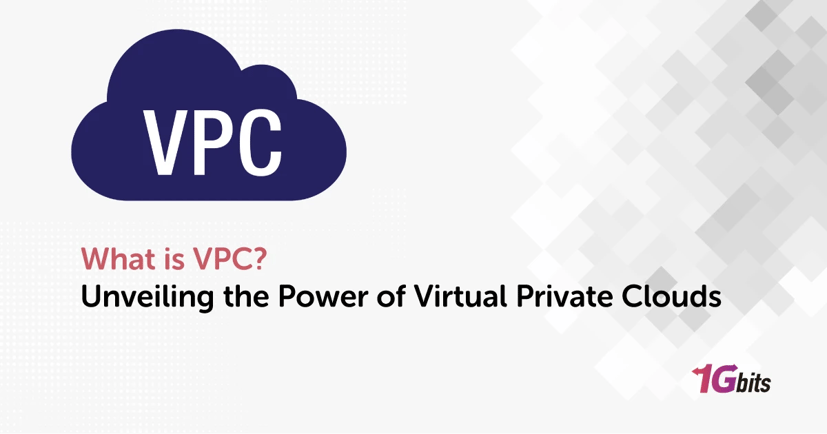

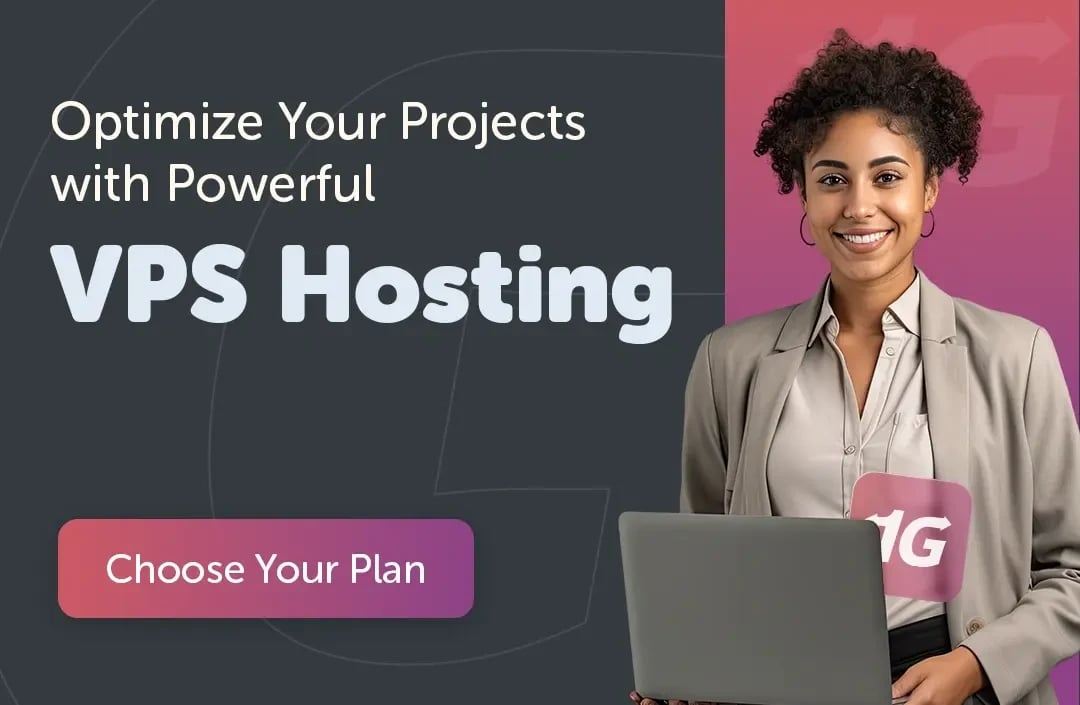
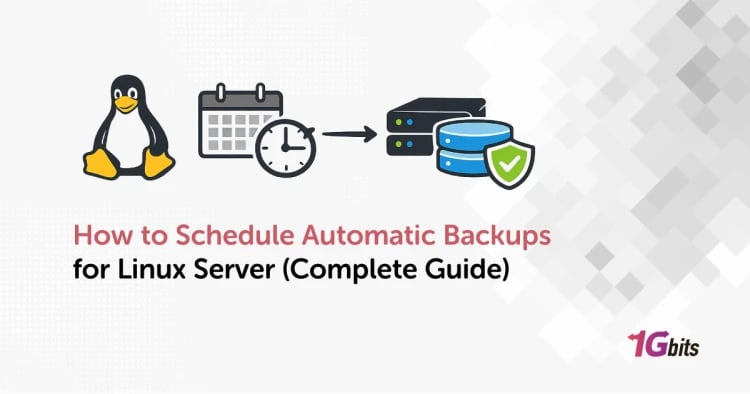
![What Is Cold Data Storage? ❄️ [2026 Guide] What Is Cold Data Storage? ❄️ [2026 Guide]](https://1gbits.com/cdn-cgi/image//https://s3.1gbits.com/blog/2026/02/what-is-cold-data-storage-750xAuto.webp)
![What Is Virtual Desktop Infrastructure? 🖥️ [VDI Explained] What Is Virtual Desktop Infrastructure? 🖥️ [VDI Explained]](https://1gbits.com/cdn-cgi/image//https://s3.1gbits.com/blog/2026/02/what-is-virtual-desktop-infrastructure-vdi-750xAuto.webp)
